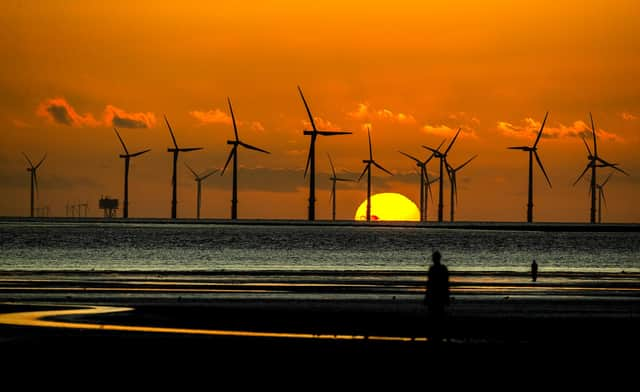Scotland's renewable energy industry is being unfairly penalised by out-dated 70-year-old rule – Kenny MacAskill MSP


With 25 per cent of Europe’s wind resources it’s hardly surprising. However, as with oil and gas, Scotland’s failing to properly benefit from its natural bounty. The loss of onshore jobs has already been felt. Turbine contracts that could have sustained BiFab and nurtured struggling communities are instead going to far parts of the globe.
Now adding insult to injury, even the full benefit of that offshore wind resource isn’t assured. It’s not just in fishing and seed potatoes that the Tories have failed to represent Scotland’s interests.
Advertisement
Hide AdAdvertisement
Hide AdFor in energy transmission of whatever type – not just renewables, and both onshore and off – there’s a disincentive to invest north of the border.
Transmission charges for energy on the national grid are weighted towards the south and loaded higher the further north you go.
Harming the Midlands and north of England, it’s a burden in my own East Lothian constituency and worse beyond. Why invest off Scottish coasts despite the energy bounty there, when there’s an additional cost and siting off the east coast of the south of England’s cheaper.
It’s an anachronism that came about initially for reasonable purposes. Started in the 1950s, the intention of the transmission charge policy was to encourage power stations to be sited near the centres of population and industry. Hence the incentivisation to site in the south.
But the renewable revolution and both a modern society and economy have changed that need and the society we live in.
Now, there’s more logic to having them sited distant from population but close to where the energy’s coming from, whether that be wind, tidal or even wave energy – all of which Scotland possesses but is financially discouraged from fully developing.
Change is long overdue and is under consideration but, in the interim, the UK government must ensure that all areas benefit from coming contracts. This isn’t just about the offshore resource but onshore work and Scotland needs its share.
Kenny MacAskill is SNP MP for East Lothian
A message from the Editor:
Thank you for reading this article. We're more reliant on your support than ever as the shift in consumer habits brought about by coronavirus impacts our advertisers.
If you haven't already, please consider supporting our trusted, fact-checked journalism by taking out a digital subscription.
Comments
Want to join the conversation? Please or to comment on this article.
